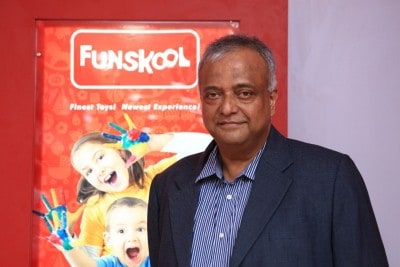


 By Venkatachari Jagannathan
By Venkatachari Jagannathan
Chennai, Aug 31 : Buoyed by Prime Minister Narendra Modi speaking about their sector, officials of the Indian toy industry are asking the government to give some more time to get the certification from the Bureau of Indian Standards (BIS).
“For the first time in the last 70 years, the Prime Minister of the country has spoken about the domestic toy industry. We are extremely happy about it,” Gulshan Gambhir, General Secretary, The Toy Association of India told IANS.
Prime Minister Modi on Sunday in his monthly radio programme `Mann Ki Baat’ said the share of India in the Rs.7 lakh crore global toy market is very small. He said India should become the global hub for toy manufacturing.
Industry officials like Gambhir and R. Jeswant, CEO, Funskool (India) Ltd said that India can become a global hub for toy manufacturing, but it would take some more time to achieve that. Jeswant told IANS that India’s capacity to make toys for global majors has already been proved.
Referring to Modi’s speech Jeswant said: “We have never seen that kind of focus on our industry from any Prime Minister.”
Meanwhile the industry players are requesting the government to extend the time for getting the compulsory BIS certification for toys. Safety of Toys has been brought under compulsory BIS certification with effect from September 1, 2020 as per the Toys (Quality Control) Order, 2020.
The toys are classified into two categories -electronic and non-electronic toys. “The big toy makers have started applying for BIS certification. There are many small companies who need time and money to comply with the BIS norms. The industry would need another 6-12 months time to comply with the BIS norms,” Gambhir said.
“We have been facing one problem or the other for the past several months and we need time,” he added. According to Jeswant, the Covid-19 pandemic has changed the shopping pattern and toy shops are seeing a slowdown in sales.
“Earlier the family will do the shopping in a mall and there will be footfalls for a toy shop. Now people may not bring their children for shopping for some more time,” Jeswant said. Referring to Modi’s speech on India becoming a toy manufacturing hub, Jeswant said the country is a suitable manufacturing destination for big toy multinationals as they are looking to diversify their production base.
Toys made by organised players are of different kinds – plastic moulded, board games, puzzles, wood toys and others. He said the Indian market — toys sold in retail outlets excluding those sold on pavements, temple and other fairs — is about Rs 3,500 crore or $450 million.
“With a huge population of children between 0-12, India offers good potential for the toy industry’s growth. Further, the current young parents were the ones who had first experienced toys made by organised players like Funskool,” Jeswant said.
Industry officials said while India can make toys for the world, there are several challenges that the industry players have to cross first. The Indian market is small, whereas the investment to be made in tooling, moulds and other items is huge and it would take a longer time to recover the investment, Jeswant and Gambhir said.
Agreeing that the government has increased the import duty to about 60 per cent from the earlier 23 per cent, the positive impact will be seen over a period of time, Jeswant remarked. Citing the Asian Pacific Trade Agreement, Jeswant said the toys imported from the countries that have signed the agreement are subjected to a duty of about 30 per cent.
Apart from lower end toys from China, there are global players who also get their toys made in China and sell them in India. However, the largest segment will be cheap toys that are sold in small outlets and pavements. Nearly 75 per cent of the organised toy market may be catered by imports. Out of the total imports, the Chinese may account for nearly 65 per cent. China supplies generic toys to the global markets. Toys with a lot of electronic content are also imported from China.
“Given this situation, the challenge is to replace the imports,” Jeswant said. There is also a dearth of toy design and development talent in the country now, but it would develop over a course of time when the domestic demand develops. “The toy industry is largely dependent on the TV animation series characters that have a good global demand. India can make those character toys for the global market,” Jeswant said. But the Indian market for such toys is small.
Disclaimer: This story is auto-generated from IANS service.

